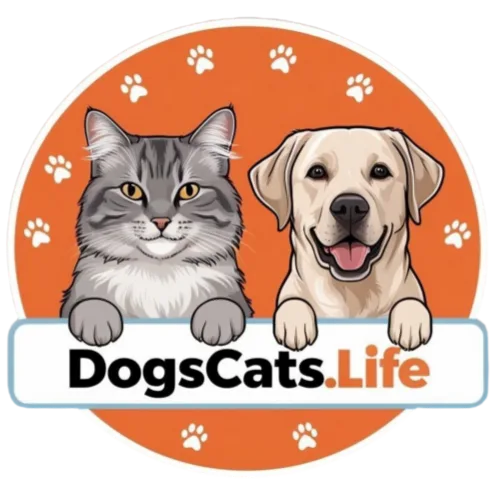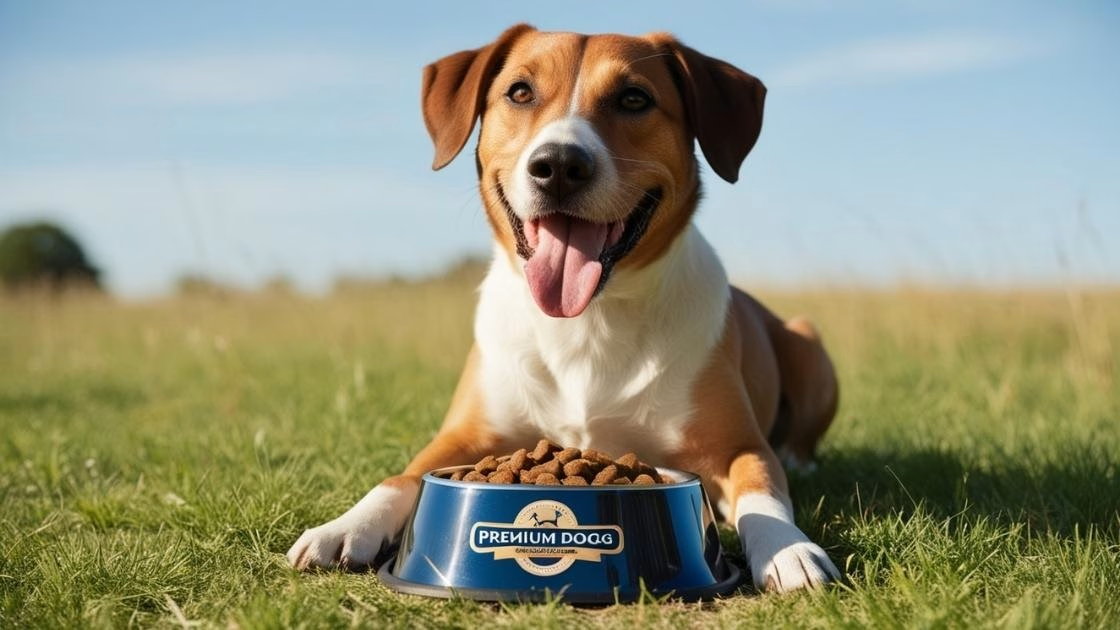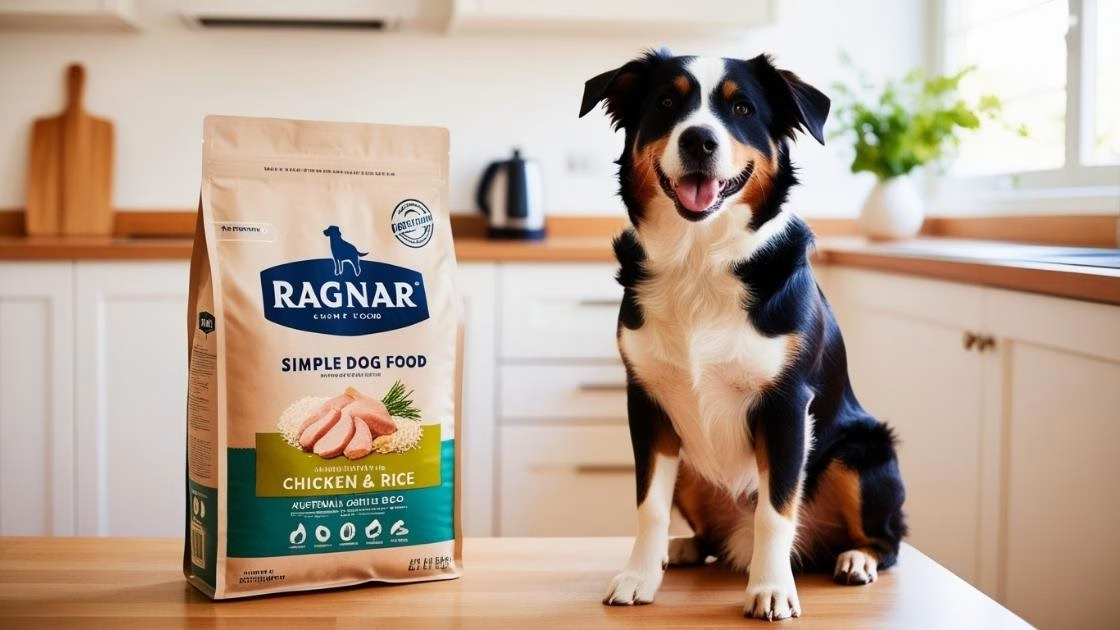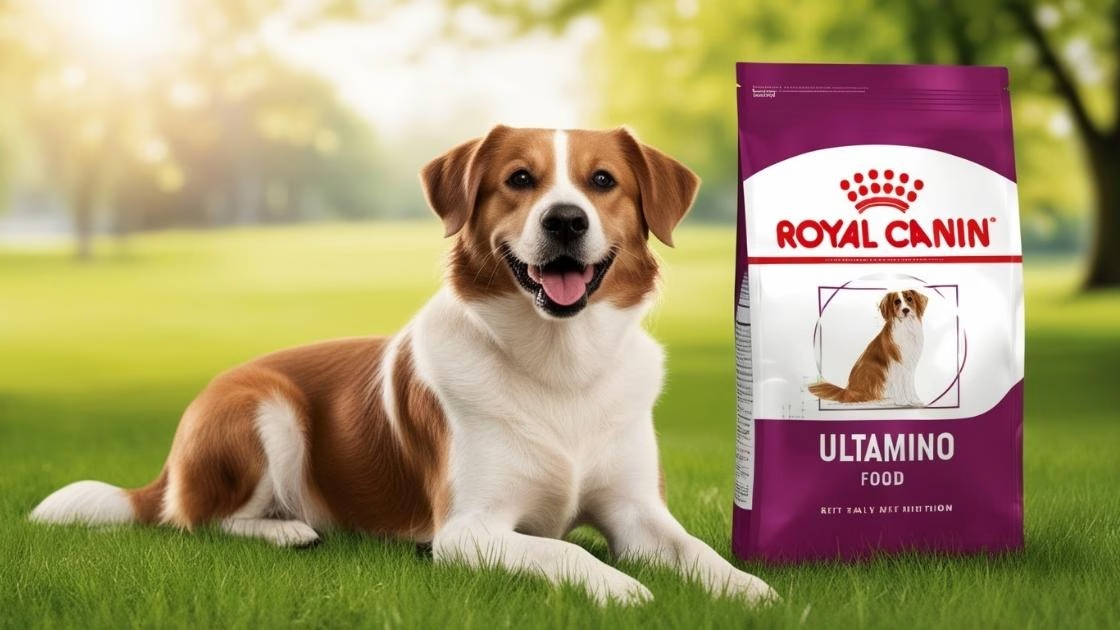Dog Health TreatsIn regard to your dog’s health and well being, treats are not just a tasty extra that can be beneficial also as part of the diet of your pet dog. Selecting the best dog treats involves selecting foods that are healthy, as well as tasty for your pet companion.
This shows that when a pup is being trained, uses supplements, or even having some dental care for their teeth, treats are useful.
In this guide, you will learn all about dog health treats to include aspects like the elements contained in dog health treats and how to choose a dog health treat for your dog. We will explore the ocean of healthy, yummy, and nutritious snacks for your lovely pet animal this time.
Key Takeaways
- These benefits are; dental health, digestive health, as well as obesity and overweight dog friendly health benefits.
- Food items are natural such as chicken, pumpkin and peanut butter which are used to make healthy treats for the dogs.
- Do not feed your pets with products that contain dangerous ingredients, such as varying amounts of sugar, salt, and artificial preservatives.
- This is especially important when choosing or making treats to give to a dog based on breed, age and health-concerns.
- Recommended by the veterinarian and made in the USA, treats guarantee the quality and safety of your dog.
What Makes a Dog Treat Healthy?
When it comes right down to choosing a treat for your dog, a healthy dog treat is not just a delicious tidbit, but rather something that will be good for your pet in more ways than one. The secret is to ensure that you buy special occasions’ treats from the health store that complies with healthy natural raw food diets for dogs. Here’s a detailed breakdown of what makes a dog treat healthy and why these components are essential:
1. Proteins: The Building Block of Health
Proteins in your dog’s diet are important for his growth, repair and maintenance of muscles and body tissues. High quality protein also supply the energy for your dog for his daily activities.It is important to note that not all protein sources is of high quality and as such, it is recommended to look for those foods that have quality proteins that are also rich in energy.
- Chicken: Juicy and low in fat, chicken is an excellent source of protein for muscles’ repair and growth, as well as for energy.
- Beef: Loaded with powerful amino acids that supply energy beef is perfect for a sparkling coat.
- Turkey: Turkey is an excellent source of nutrition and gentle on dogs’ digestion systems for those with adverse reactions to other proteins.
- Pork: Though it is a bit higher in fats, pork can actually be given as an ingredient in dog foods in moderation.
Why Proteins Matter: A dog is a non-sensitive herbivore but his diet mostly consists of animal protein foods. These proteins are useful in repairing tissues, building muscles and providing energy post exercise in specially the active breeders or growing puppies.
2. Fruits and Vegetables: Nature’s Multivitamins
They don’t only add value to the treats but they provide a variety of vitamins, minerals and also antioxidants. These ingredients give your dog’s system a lift and improve his overall health.
- Pumpkin: Pumpkin contains a high level of dietary fiber; thus, it can help to sort out constipation and diarrhea problems.
- Carrots: Another crispy food item having vitamin A in plenty, carrots are good for eyes besides being an ideal snack for those on restricted calorie intake to lose those extra pounds.
- Apples: Apples contain Vitamin C and antioxidant, which makes them fabulous (seeds should not be given as they are lethal to the dogs).
- Berries: Blueberries, strawberries and cranberries are packed with antioxidants and provide protection to the immune system and reduce inflammation.
Why Fruits and Vegetables Matter: These ingredients are packed with phytonutrients and vitamins which fight free radicals, enhance digestion, and renew skin and coat glow.
3. Healthy Fats: Essential for Skin and Coat Health
Another essential nutrient that is not just energy yielding, but plays a direct role in animal’s skin, hair and cells. The point is to select correct types of fats for a diet.
- Omega-3 Fatty Acids: A omega three fatty acids is gotten from fish oil, flax seeds as it enhances skin health by reducing inflammation and enhancing skin moisture resulting to high sheen coat.
- Moderation: But then, fats are needed, though taking too much can result in obesity. Watch for treats which are not too high in fat, though they should not be quite low on fat either.
Why Healthy Fats Matter: Fatty acid supplements, especially the omega-3s, improve dogs’ skin and coat, especially in animals with allergies. Puppies benefit from their formulas with supporting the proper development of the brain, and senior dogs gain advantages with their cognitive health.
4. Vitamins and Minerals: Boosting Health from the Inside Out
Adding key vitamins and minerals to treats helps solve particular health problems and enhance one’s condition in general.
Vitamin C: A vitamins that enhances the immune system of your dog which assists in preventing diseases and strengthens the joints.
Calcium: Is vital for healthy teeth and bones, crucial to the health of both puppies and old dogs.
Probiotics and Prebiotics: These help cultivate a healthy gut due to enhanced function of digestion and absorption of nutrients. Iron and Zinc: Essential metals to help body in forming red blood cells and also skin regeneration.
Healthy Ingredients in Dog Treats
| Ingredient | Nutritional Benefit |
|---|---|
| Chicken | High-quality protein for muscle health. |
| Pumpkin | Rich in dietary fiber for better digestion. |
| Carrots | Packed with Vitamin A for eye health. |
| Peanut Butter | Protein-rich and tasty (unsalted, no sugar). |
| Blueberries | Antioxidants for immune support. |
What to Avoid in Dog Treats
Not all treats are equal and the examples below are evidence for the need for people to make the right decision when selecting a treat. Be cautious of these harmful ingredients:
- Preservatives: This artificial preservatives is dangerous for dogs.
- Excess Sugar and Salt: Excess intake of sugar and salt cause obesity and other diseases.
- Gluten and Allergens: Wheat, gluten, and soy products usually cause allergic reactions in dogs that have sensitive stomachs.
Types of Dog Health Treats
Crunchy vs. Chewy Treats
- Crunchy Treats: They come in handy in enhancing dental hygiene as they are used to dislodge soft deposits of food that form a sticky film on the teeth known as the plaque, as well as calculus.
- Chewy Treats: Good for the young growing pets or the older dogs whose teeth are not very strong.
Specialty Treats
- Probiotic Treats: Maintain the gut health or/and support the digestive system.
- Freeze-Dried Treats: Preserve all the nutrients found in raw food ingredients.
- Dietary Supplements: …flavoured with vitamins and minerals for improved nutritional value.
Types of Dog Treats and Their Benefits
| Type | Best For | Example Ingredients |
|---|---|---|
| Crunchy | Dental health | Chicken, pumpkin, carrots |
| Chewy | Training and puppies | Peanut butter, cheese, turkey |
| Freeze-Dried | Nutritional retention | Liver, apples, blueberries |
| Probiotic | Digestive health | Pumpkin, prebiotics, probiotics |
Dog Treats for Specific Needs
Dog treats are not merely bribes; they are a tool that can be used in order to assist your dog live a better life due to health issues that can be solved by giving your dog certain types of treats.
If you want to teach your dog how to brush its teeth, to lose weight or to feed a dog with sensitive stomachs or other special conditions, there is a treat for that. Let’s go through these specialized treats with more detail and see how each can be great for your pet.
1. For Dental Health
Dental chews are one of the best ways to help with canine oral health and are an easy way to supplement their daily healthcare. Such treats are particularly developed to help you ultimately fight the formation of plaque and tartar as well as bad breathe in your dog.
Key Features of Dental Treats:
- Calcium-Enriched Ingredients: This one is crucial for growth of tissues most importantly the teeth and bones. This boosts your dog’s teeth and gums, decreasing the chance of dental diseases provided the treats contain calcium.
- Crunchy Textures: Some of the crunchy foods make it easier to remove plaque and tarter as your dog chews them just like a brush.
- Special Shapes and Designs: Some dental chews are made to have raised lines or patterns that can extend to the space between teeth and act on the gums.
Benefits:
- Lowered possibility of getting gum disease, which if not treated in good time may cause, mouth sore, loss of teeth and other health complications.
- It has to do with breath freshening to make cuddle time much sweeter.
- A requirement of fewer professional cleaning sessions at the dentist’s office.
Examples:
- Cookies cut and shaped and flavored with mint or parsley for a fresher breathe.
- Dog or adult dentures that contain enzymes that help dissolve tarter.
2. For Weight Management
Another disease typical for dogs is obesity which also results in severe health disorders including dyscia, arthrosis, diabetes mellitus and cardiovascular diseases. The products we recommend for weight loss support healthy weight for your pet while enabling you to occasionally pamper your pet.
Key Features of Weight-Management Treats:
- Low-Calorie Formulas: These treats have restricted calories per serving thus avoiding added weights while not compromising on the tasty crave.
- High-Fiber Ingredients: Foods such as carrots and pumpkins have lots of fiber which contributes to your dog’s bulk enabling it to have the feeling of fullness without the extra food energy.
- Protein-Rich: Chicken and turkey provide the dog’s body with required nutrients and keep it far from unhealthy fats.
Benefits:
- Useful in maintaining or managing your dog’s daily calorie consumption in an effort to avoid or treat obesity.
- Helps in the maintenance of joint health which would have been compromised due to the add extra pressure.
- Offer a good bite that is not likely to cause problems with your dogs feeding schedule.
Tips for Using Weight-Management Treats:
- Giving your dog treats can help in training or during play, make sure you do this in moderation.
- Use it in conjunction with exercise and proper nutrition to help get the best of the supplement.
Examples:
- Chicken or turkey bites that have been freeze dried and which contain little to no calories.
- Low fat pumpkin biscuits that are high in fiber.
3. For Sensitive Stomachs
Picky dogs or those suffering from stomach ulcers, and food intolerances have special nutritional needs when it comes to treats. Manufactured diets specifically designed for a delicate abdomen contain fewer ingredients and untried protein sources.
Key Features of Sensitive-Stomach Treats:
- Limited Ingredients: These treats contain fewer ingredients, anterior to they are prone to cause some form of food sensitivities or allergies. Excluded are such products as wheat, soy and most dairy products which are likely to irritate one’s skin.
- Novel Proteins: The same applies for different proteins, where a turkey, duck, or buffalo is going to be less problematic than beef or chicken.
- Digestive Aids: Fiber and ultimately prebiotics are essential in digestion and control of the gut flora, while probiotics are the living strains that enhance digestion.
Benefits:
- Reduces the incidence of gastrointestinal upset like diarrhea, vomiting, and or bloating.
- Reduces symptoms of food allergy such as skin rash, itching and ear injuries.
- Improves the function of the human gastrointestinal tract for general well-being.
Examples:
- Dehydrated turkey or duck jerky in trays or strips and pieces that are single-ingredient products.
- Functional biscuits containing probiotics for enhancement of digestion.
Tailoring Treats to Your Dog’s Needs
Different dogs and, therefore, the treats they are given should be related to their health conditions in one way or the other. Here’s a quick comparison of the needs and solutions:
| Need | Solution | Examples |
|---|---|---|
| Dental Health | Crunchy, calcium-enriched treats | Mint-flavored biscuits, dental chews |
| Weight Management | Low-calorie, high-fiber treats | Pumpkin biscuits, freeze-dried meat |
| Sensitive Stomachs | Limited-ingredient or novel protein treats | Turkey chews, probiotic biscuits |
How to Choose the Best Dog Treats
Read the Label
When selecting store-bought treats:
- Make sure to choose those products that are marked “Made in USA” to ensure quality is a notch higher.
- Shun those usual chemical added preservatives and chemical added sweetners as well chemical added salts.
- Choose treats that have quality source of protein and minimal processed additives.
Label Comparison – What to Look For
| Good Label | Avoid This Label |
|---|---|
| “Natural Ingredients” | “Artificial Flavors” |
| “High Protein (Chicken, Beef)” | “By-Product Meals” |
| “No Artificial Preservatives” | “Contains BHA/BHT” |
Homemade vs. Store-Bought
- Homemade Treats: Fully customizable for the ingredient, which is advantageous for canines with sensitivities.
- Store-Bought Treats: Practical and sometimes supplemented with further vitamins and minerals.
DIY Healthy Dog Treat Recipes
Peanut Butter and Pumpkin Biscuits
- Ingredients: Chicken breast, carrot, rolled oats, eggs.
- Instructions: Bowls combine: flour, sugar etc.; knead, then shape; putting scones in the oven at 350°F for 20 minutes.
Chicken and Carrot Waffles
- Ingredients: Shredded chicken, grated carrot, oat flour, eggs.
- Instructions: Mix all the components, pour into a waffle maker till a desirable color occurs.
Using Treats in Dog Training
Rewarding Good Behavior
- Presents the treatment as a positive and therefore training becomes something special.
- Recommended Brands and Recommendations
Strengthening Your Bond
- Treats create a positive association, making training a bonding experience.
Top Brands and Recommendations
USA-Made Favorites
- Old Mother Hubbard: Traditionally famous for biscuits for dogs that contain no chemicals or artificial additives.
- Blue Buffalo: Some brands have nice choices, especially, if you’re looking for grain free kibble.
Vet-Approved Options
- Commercial pet foods known to be approved by vets tend to be specialty products such as those that address issues with dental care or obesity.
My Opinion
As a slow feeder bowl, a pet safe treat I have found, is among the many healthy treats, is for me, such a small yet significant sign of care and love to my pet while offering the encouragement it deserves to live a healthy life. I always took a standpoint that the treats our pups eat should not only cause their tails to wag but bring some value to their lives.
Knowing what is in the food, and what nutrients our pets need, allows us to feed them well and maintain their happy healthy selves. What I’ve discovered is that it’s possible to make time for reading labels of some foods, experiments with making natural mixture at home or purchasing some approved by veterinarian products.
It’s not a question of reaping the benefits of the efforts that goes to your pet; it’s about making certain that it lives a happier, Healthier, happier life. There is no better reward or motivation than their smiles or playful looks after a good snack or their mischievous looks after preparing the meal.










Leave a Reply
View Comments